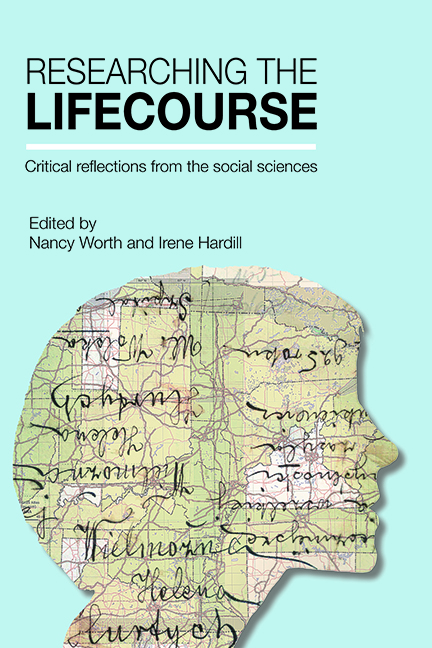four - A restudy of young workers from the 1960s: researching intersections of work and lifecourse in one locality over 50 years
Published online by Cambridge University Press: 08 March 2022
Summary
Introduction
Since 2000 we have been undertaking a detailed restudy of Norbert Elias’s previously lost ‘Adjustment of Young Workers to Work Situations and Adult Roles’ (1962–4) project. This project was not only important because of its links to Norbert Elias or because it was one of the largest studies of school to work transition at that time (see Goodwin and O’Connor, 2005a), but also because there are very few ‘classic’ studies from the post war period that focused on the English East Midlands and a key centre of engineering, textiles and clothing and footwear manufacture. As part of the restudy we have considered the intersections of work, lifecourse and locality (see Goodwin and O’Connor, 2005a; 2005b; 2006a; 2006b; 2007a; 2007b; O’Connor and Goodwin, 2004; 2010; 2012; 2013a). For example, analysis of the data reveals that the transition from school to work in the 1960s was far more complex than previously thought by academics and policy makers. While the local labour market was initially buoyant, and fairly distinct from other local labour markets in terms of the levels of work available in specific sectors, examination of individual lives suggests that quality jobs were hard to obtain and retain. Moreover, the ‘gold standard’ of apprenticeship was not always experienced as the most rigorous or complete approach to training. The lives of these once young workers also reveal how vulnerable workers are to changes in the global economy. For example, individuals interviewed thought that they were entering ‘jobs for life’ and did not foresee the drastic labour market change and transformation that beset the local economy from the late 1970s onwards. Such change had significant impacts on subsequent careers with very few able to work in the industries for which they had originally trained.
Our research was made possible by a chance rediscovery, in an attic office, of 851 original interview schedules as well as some background documents written by a research team from the 1960s. The 1960s research was funded by the Department of Scientific and Industrial Research, and carried out by the Department of Sociology at the University of Leicester, UK. The original research concentrated on how young people experienced work and adjusted their lives to new work roles in adulthood.
- Type
- Chapter
- Information
- Researching the LifecourseCritical Reflections from the Social Sciences, pp. 63 - 80Publisher: Bristol University PressPrint publication year: 2015



